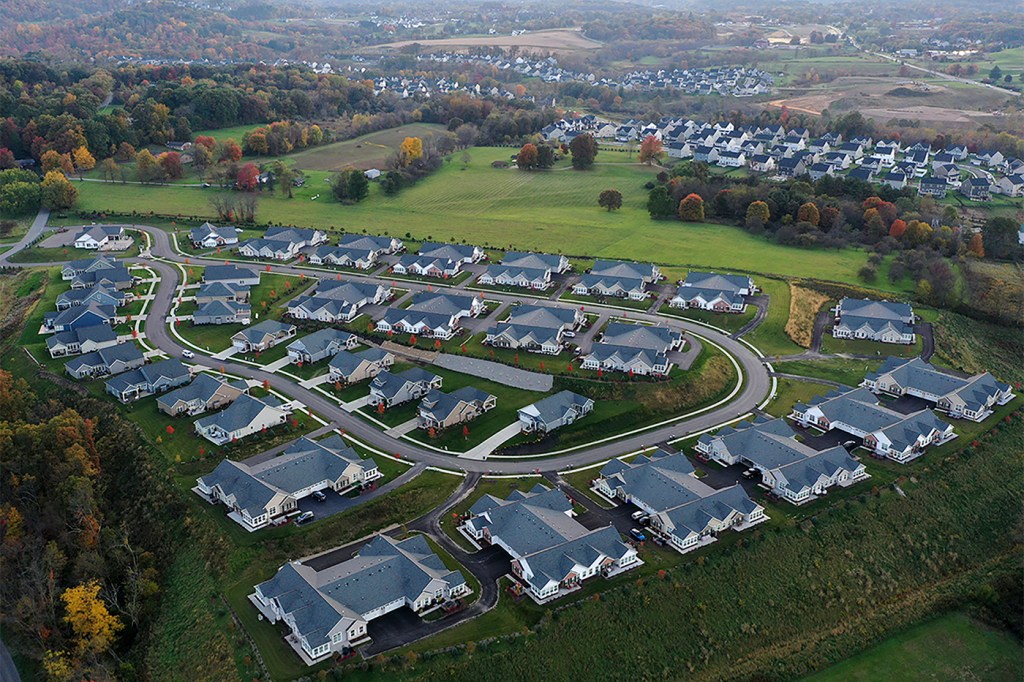Should you buy a home, or rent? Financial experts recommend taking these steps amid high interest rates

With mortgage rates hovering close to 8% — and interest rates, more broadly, at similar heights — businesses and households alike are finding present financial conditions hard to navigate.
If you’re a first-time home buyer, is now a good time to buy? Should you rent instead? If you own a business, should you wait to take out a loan?
We convened several finance and economics experts to offer some tips for navigating these tricky financial conditions.
Mortgage rates and the housing market
“With interest rates being what they are, people seem to be moving less and there is less mortgage activity,” says Andrés Shahidinejad, an assistant professor of economics and finance at Northeastern University.
“All of a sudden, the idea of renting has become, relatively speaking, more attractive than buying,” he says.
During periods of high inflation, conventional wisdom suggests that raising interest rates will help tamp down demand and, therefore, drive prices down. But in the current housing market, the story is more complicated.
“You would generally expect that, with higher interest rates, prices would be coming down,” Shahidinejad says.
Shahidinejad says that a shift in how consumers view owning a home — as an investment vehicle in addition to being a place to live — may be contributing to the stickiness of home prices. In addition, housing inventory remains close to historic lows, while sales of previously owned homes have also been falling.
“Even though many people would like to sell, they’re attached to some idea of what their house is worth, which they probably formed when house prices were increasing,” Shahidinejad says.
“Then they see that now, under the current conditions, they would be unable to get that price for their house — so they ultimately don’t offer to sell,” he says. “Unlike during previous housing slowdowns, this is a sustainable option for them because they locked their mortgage in with very low and fixed interest rates. This reduction in supply has helped prevent house prices from falling.”
He continues: “Because people do not view their house purely as a tradeable asset, house prices can be stickier than, say, stocks or bonds.”
Households are also falling behind on their car loans as a result of rising prices and higher interest rates. The second-largest household expenditure pertains to transportation — usually in the form of auto loans and expenses, Shahidinejad says.
What should borrowers know when weighing big purchases?
“Borrowing money is just much more expensive,” Shahidinejad says. “This is really the basic takeaway that households should not lose sight of when we talk in sophisticated ways about the impact of increasing interest rates.”
“If you are thinking about borrowing money, always double-check what your interest rate is going to be,” Shahidinejad adds. “Make sure you are not surprised by how much interest you are paying on outstanding balances. If you happen to have cash sitting around in your checking or savings account, and you have a balance on a loan with a high interest rate, see if it makes sense to pay it off.”
When it comes to both households and businesses, “Cash is still king,” says John Bai, an associate professor of finance at Northeastern. “If you do have the ability to save up money from your job or entrepreneurial activities — save it.”
Bai, a corporate finance expert, says that businesses and consumers are both feeling the credit squeeze.
“Much of the logic that applies to firms is the same when it comes to household decisions,” Bai says.
“Firms are cutting their investments; they’re relying more on internal cash flow instead of raising equity or debt from the external market,” he says.
For those with cash on hand and who are looking to invest, many of the old maxims still apply.
“Diversification is the key here,” Bai says. “And don’t forget about real estate. If you have enough cash, then getting into real estate is the one safe place.”
“A lot of the hindrance right now in the real estate market comes from high interest rates and mortgage rates,” he adds. “But if you’re a cash buyer, then that is a market you can get into without worrying about value deterioration.”
Future borrowing expectations
Bai says there is overall more certainty about long-term borrowing prospects today than there was six to eight months ago.
“Twenty-five basis points [or 0.25% percentage points] is what people are talking about before the end of the year, and that’s pretty much the maximum expectation people are building into the prices now,” Bai says.
Bai says that, moving forward, it’s reasonable to expect interest rates will come down. But the manner of that rate of fall — exactly how and at what speed — remains to be seen.
“I think the [Federal Reserve] is doing a lot of watching and analyzing as opposed to action,” Bai says.
The Federal Reserve left interest rates unchanged Nov. 1 but left the door open to raising them in the future.
Tanner Stening is an assistant news editor at Northeastern Global News. Email him at t.stening@northeastern.edu. Follow him on X/Twitter @tstening90.





